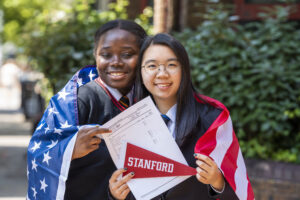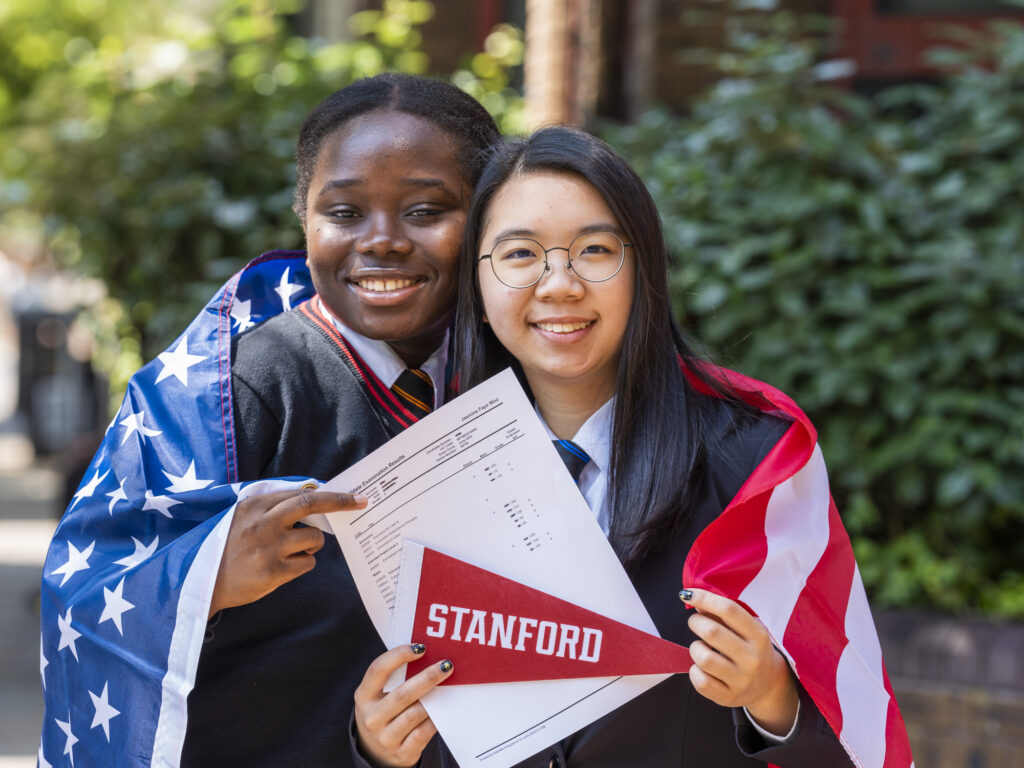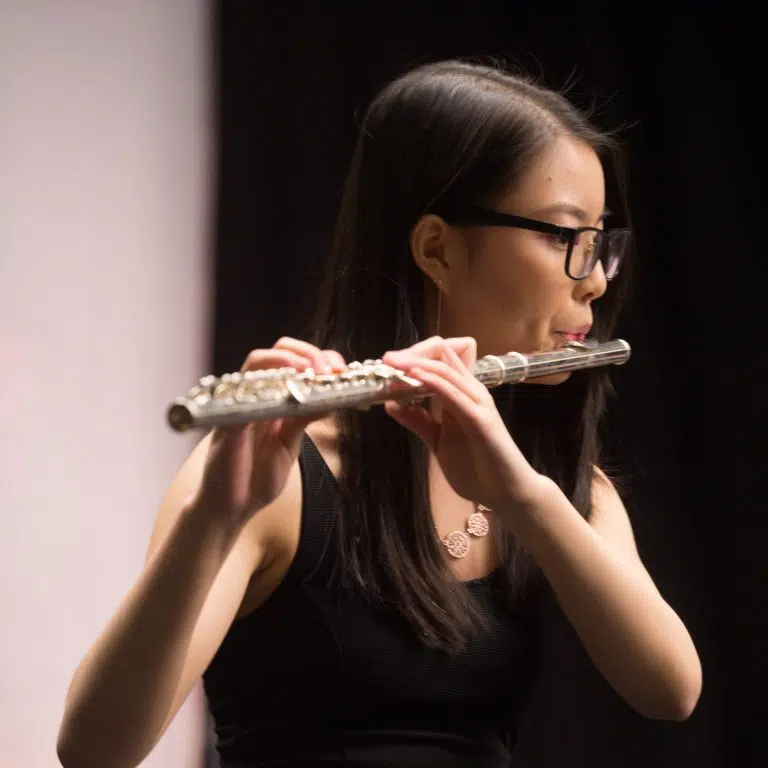In recent years, a significant trend has emerged in the educational landscape of the United Kingdom: an increasing number of international students studying in the UK are opting to pursue higher education in American universities. This shift in preference highlights the exceptional opportunities and advantages that American institutions offer, enticing ambitious young minds across the Atlantic. However, are there particular courses more suited to US universities and is cost a significant factor?
Milly Wong from Hong Kong who joined Cardiff Sixth Form College to study GCSEs followed by A levels has just gained a place at Stamford to study Mechanical Engineering and Sustainability. “For me it was all about flexibility as you don’t have to decide on your major until the last term of your second year” she said. “The downside may be that it is a four-year instead of a three-year course, but I liked the fact that the US has a more liberal arts education and I can pick whatever I am interested in. Although I will do maths and physics as core subjects, I can combine them with modules in international relations for example as I have many interests. I have been part of the Robotics Team at Cardiff and the NASA Club, but I am also a keen debater and represented Wales in the World Schools Debating Championships. I am also a member of Cardiff Production House making videos, enjoy Model United Nations and am Editor of the STEM Magazine, so I believe it is these aspects, combined with academic results, which made Stamford interested in my application.”
Hayley Bendle, Head of Careers at Cardiff Sixth Form College feels that US universities appeal to students who have diverse interests. “Whether students’ interests lie in the sciences, humanities, engineering arts or business, American institutions offer comprehensive curricula, ensuring students can tailor their education to their unique career aspirations” she said. “The flexibility to explore inter-disciplinary fields, combined with world-class faculty and cutting-edge research facilities, provides an unmatched educational experience for some students. I have found that students who are successful are coming to us with more experiences under their belt already and if they join us at a younger age and we understand their aspirations, we can help them become far more all rounded by taking active roles in school life, volunteering, work placement and extra-curricular activities but also prepare them for what US universities are looking for: community spirit and a desire to make the world a better place.”
American universities also go beyond traditional classroom learning, placing a strong emphasis on holistic education and personal development. Tolu Waniyin Ojo-Osagie from Nigeria, who is also an American citizen and has a place at MIT to study Electrical and Energy Engineering, feels that her university is looking for authenticity. “MIT is about work/life balance” she said. “I really enjoy studying but I spend my spare time walking with friends and relaxing and I am very keen on giving back to society. I have volunteered for the Lattice Club, raising money for women and children displaced by Boko Haram, raised money for Noah’s Arc charity and want to bring my skills back to Nigeria to work on sustainability projects to improve lives.”
Tom Arrand, Principal of Cardiff Sixth Form College, feels that global rankings and the politicising of education by Oxbridge has proved significant factors for international students. “American universities have long held a reputation for academic excellence and global recognition with the Ivy League in particular synonymous with innovation and ground-breaking research. We have students this year going to New York, UCLA, University of California as well as MIT and Stamford to study subjects as wide reaching as computer science, creative arts, economics and engineering and our students are extremely ambitious. They want access to renowned scholars, industry leaders and like-minded peers from around the world to help them open doors to career opportunities within a global, multicultural environment.”
Cost for some students however is a significant factor with American universities having higher tuition fees for international students ranging from $20,000 to $50,000 compared to the UK’s £10,000 to £38,000 per annum. Like American universities, UK institutions offer various scholarships and financial aid to support international students in managing their expenses and of course living expenses vary depending on location. However, both the US and UK have provisions for international students to work part-time during their study which can help offset living expenses.
“When looking at US universities as a pathway, finding the right ‘fit’ is essential” added Hayley Bendle. “Students need to prove to the universities that they are what they are looking for, that they have a broad range of experiences to prove this as well as being able to articulate this both in writing and verbally. We help our students significantly with self-reflection, research with them the kinds of universities that match their needs and aspirations and consider breadth of learning alongside excellent academic results.”
American universities are also excellent at maintaining strong ties with industries, businesses and organisations providing abundant opportunities for internships, research collaborations and networking. Many international students are recognising the potential for professional growth and career advancement with this exposure to the dynamic job market and connections with industry leaders often translating into promising career prospects and increased employability upon graduation.
“We have recognised the need for our students to gain work placements, develop career-based skills, undertake research and network right from school level” said Tom Arrand. “Milly for example worked with engineers from Network Rail to discover why cracks were appearing in the Severn Tunnel and Tolu undertook work placement at an oil and gas company.
“However, for students wanting to study specialised degree programmes such as Law and Medicine the UK is far more popular. Five or six year programmes which combine theoretical knowledge with clinical training rather than a four year US bachelor’s degree followed by a further four year medical school programme makes these programmes prohibitive for many. What the UK does well is providing rigorous standards in medical and legal education and keeping the cost of funding as low as possible with the promise of decent salary rewards and diverse exposure following graduation, ensuring that for these types of degrees the UK is still world leading.”






